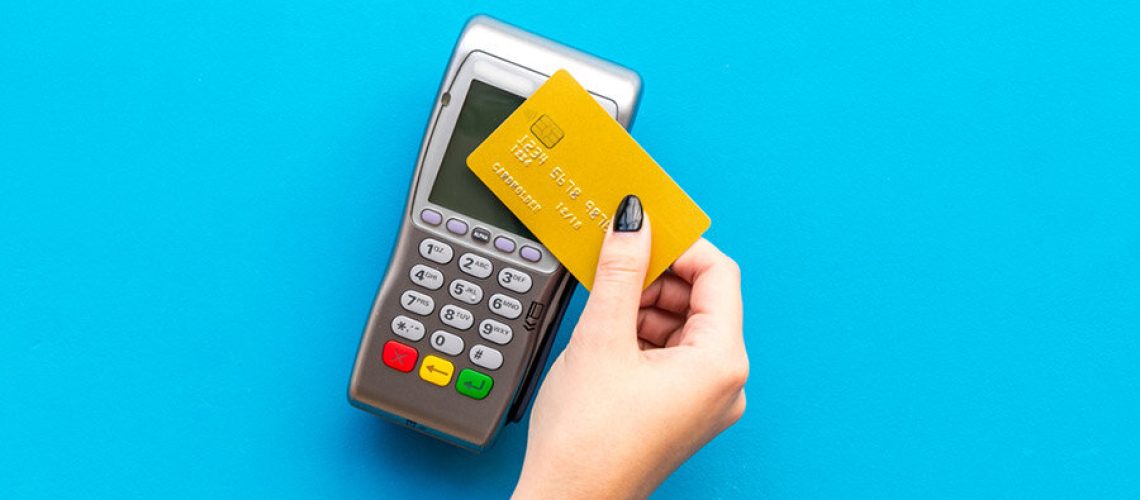Stepping up into the world of credit cards is an exciting milestone that we often aren’t prepared for. It’s also a big adjustment. While most of us have an idea of how the credit card works before we dive in, it can be all too easy to get carried away or step back from responsible spending.
Credit card debt can impact your credit score.
A credit card has the potential to boost or completely ruin your credit score, depending on how you go about it. Simple things, such as making a late payment, can affect you. And while it may be all too tempting to fork out on a big-ticket item that you can’t quite afford yet, there are plenty of reasons not to overspend on your credit card.
Here’s the thing, we are all guilty of overspending from time to time – and there’s nothing wrong with that. In fact, it can be fixed quite easily. But most people are simply unaware of how their spending behaviour is actually affecting them.
Next time you reach for that piece of plastic to pay for something, consider these 4 reasons you should stop overspending on credit cards.
-
It Affects Your Credit Score
When it comes to taking out credit, even just a credit card, it is important to think about your long term goals. Everything you do now has an effect on what you can do in the future. Overspending on your credit card affects your credit score, which, in turn, makes it harder for you to take out any other loans in the future.
Did you know… even if you are under your credit limit, your credit score is still affected. This is referred to as your credit card utilisation ratio. If you have a $15,000 limit and have reached $14,500 on that card, the high amount of credit you are using is then reflected on your credit score.
-
High Costs
Another reason you need to avoid overspending on your credit cards is the costs it accrues for you. If you overspend and are unable to pay the money back when it is due, you get charged with late fees. This has a snowball effect getting you into more and more debt that you can’t pay your way out of.
Once a payment is brought over to the next month, you then also have to pay interest on top of this, sinking you further into debt in the process.
While it is nice being able to use a credit card to buy things you need in the moment, if you are unable to meet payment deadlines, those items can be very costly with fees and interest added on top.
-
Unforeseen Circumstances
Many people spend on their credit cards and happily reach their limit, knowing they will be able to pay it back the following payday. The problem with this method is that it doesn’t account for unforeseen circumstances that crop up in life: illness, car accidents, urgent house repairs. If you are overspending on your credit card and have an unexpected bill that needs to be paid, it will tip you over your limit and make it harder to come back from.
-
The Minimum Payment Will Increase
The minimum payment that is set on your credit card each month is based on the size of your credit card balance. If your balance keeps increasing as your overspend on your limit, then so does your monthly minimum payments.
Suffice to say, if you are already struggling to stick to your budget and overspending on your credit card, then an increase in monthly payments is going to place a high strain on your finances.
Just remember, you can always take back control and get yourself back on track financially. Here are some ways you can stop overspending on your credit card:
Budget
Set yourself a budget each month and factor in all your life expenses. This should also include money going into savings for a rainy day (unforeseen circumstances mentioned above). Ignore your credit limit, and instead, work off your budget. This will mean when you get your credit card bill in the mail, it won’t come as a huge shock and you’ll have no problem paying it off.
Think Before You Use
If you are an impulse buyer, consider leaving your credit card at home on your next trip to the shops. Every time you reach for it in your wallet, ask yourself “Can I afford this?”. Ignore how much credit you have on the card and consider your personal finances. By asking yourself this every time you make a purchase, you will have more control and make more sensible decisions.
Pay On Time
If you budget and think before you use, then you should have no issues with paying your credit card on time. This will then ensure you avoid any late fees or interest on the amount used, so you won’t find yourself spiraling further into debt.

